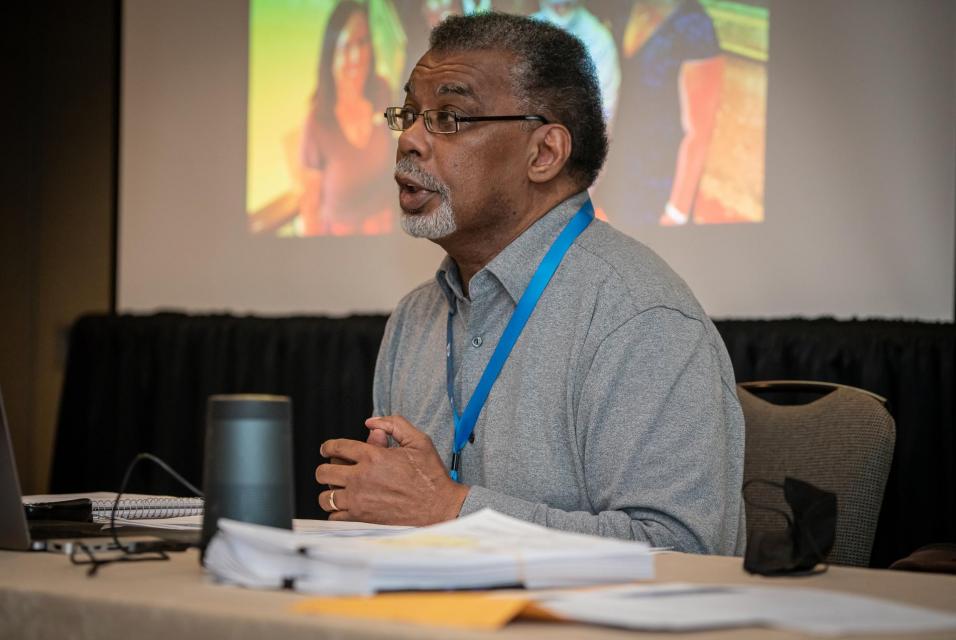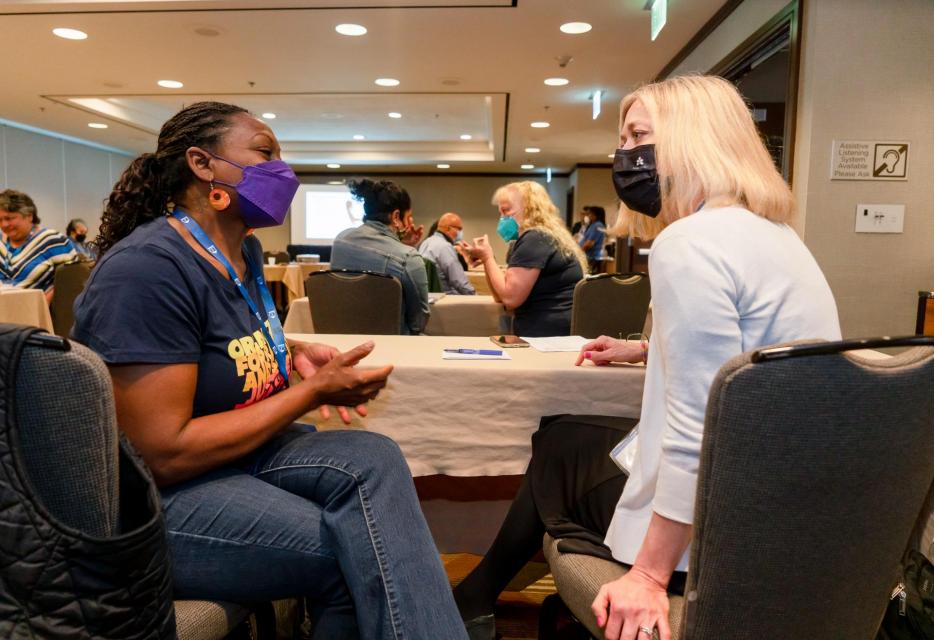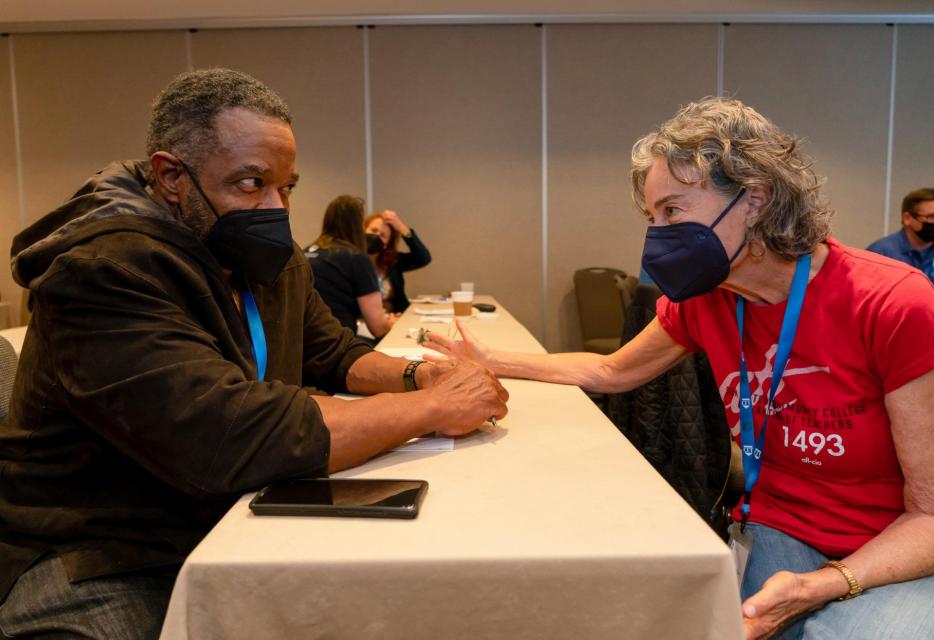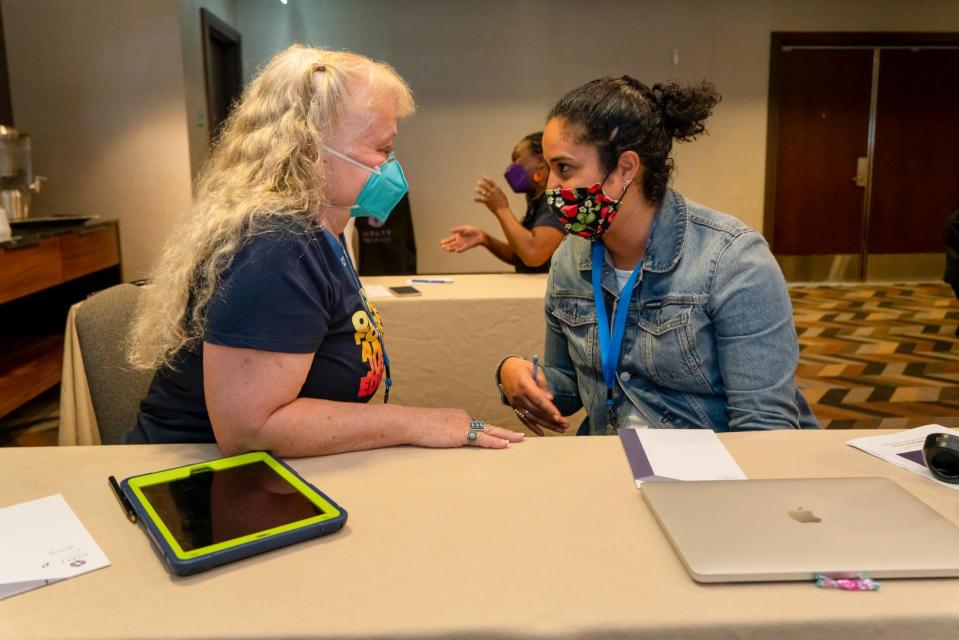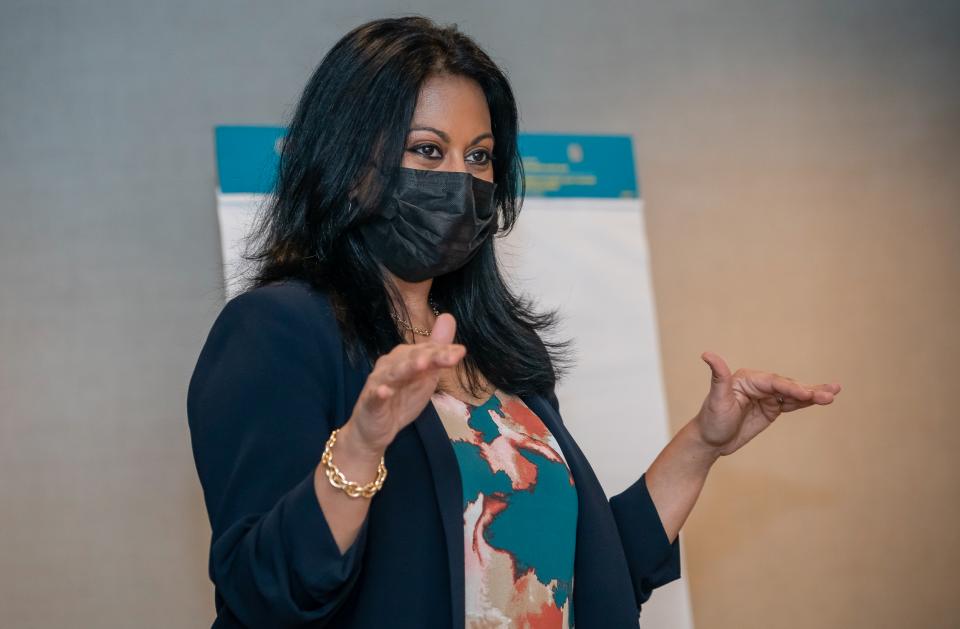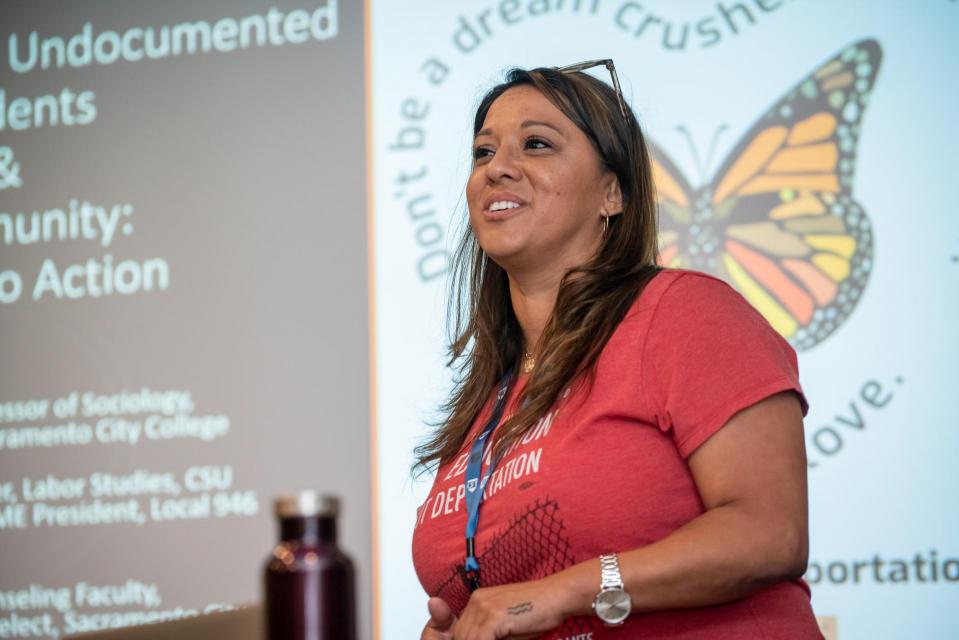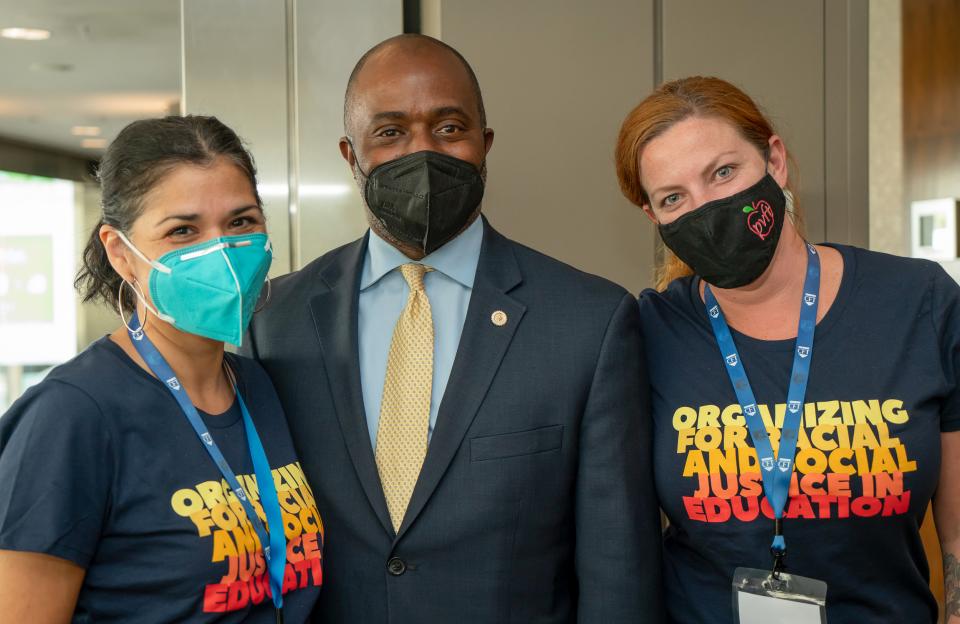Bill Pritchett, a specialist in racial justice, communications, and leadership development, and who guided CFT’s Racial Equity Task Force, began his workshop on “Dismantling the Intersections of Male Supremacy Culture and White Supremacy Culture in Our Workplaces” (whew, tall order) by talking about how impressed he is with CFT’s commitment to racial justice.
And he’s not the only one. Pritchett said a friend told him CFT’s racial justice plan was the reason she went to work for CFT.
“She said, ‘It blew my socks off. It’s so practical, not lofty or these broad statements that you hear over and over. You could implement it today,” he told participants.
Pritchett told people that the topics covered in the workshop — racism and sexism — are not ones people usually talk about, and they might feel uncomfortable. He asked everyone to connect to their core values and speak from their hearts.
Also, he said to remember that it isn’t just white people who create oppressive cultures.
“People of color can be just as masterful at promulgating white supremacy and male supremacy,” he said. “Sometimes it shows up in a coded way.”
We need to look at systems that lead to white supremacy, rather than focusing on individuals, Pritchett said. He talked about what happened with Ralph Northam, the governor of Virginia, when photos of him wearing blackface in college showed up.
“What was the accountability? It was to get him out of there, rather than using it as a teaching moment to lift up reasons the system made him think that was OK,” Pritchett said. “Even people who have gone through the workshops point the finger at individuals and miss looking at systemic underpinnings.”
Pritchett underscored that diversity is not the same as equity, saying a lot of organizations don’t understand this.
“For some of them, all they’re working on is diversity, and they’re skipping equity and inclusion,” he said. “Your organization could have all women leaders and still have a male supremacy culture.”
Pritchett asked attendees to be more explicit about race. An example he gave was using profiling to talk about the police targeting people of color.
“Don’t just say profiling, call it racial profiling,” he said. “Stop- and- Frisk was in the Bronx, which has lots of Black and Brown people. People carry weapons and do drugs in the Hamptons too, but they’re not profiling them.”
Pritchett showed part of a TED talk from Kimberlé Crenshaw, UCLA School of Law and Columbia Law professor, who coined the term intersectionality in 1989. Crenshaw talked about a case where a Black woman sued General Motors claiming that she had faced employment discrimination based on race and gender. The judge dismissed her case, finding that the company had hired both Black people and women. Crenshaw pointed out that the Black people hired were men, and the women where white, and neither represented the case of a woman of color, and she talked about the importance of how we frame things and the narratives we tell.
This is something we need to recognize, Pritchett said, and work for in our local unions.
“We need to tie it to the strategy of our organizations,” he said. “Make a case for why racial and gender equity is critically important to the mission of your union.”
— By Emily Wilson, CFT Reporter

